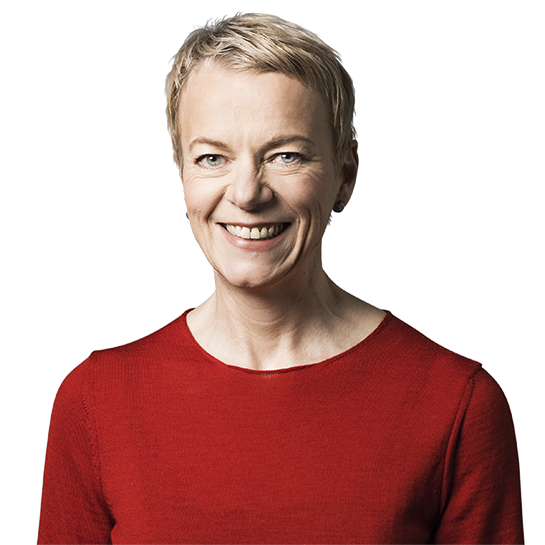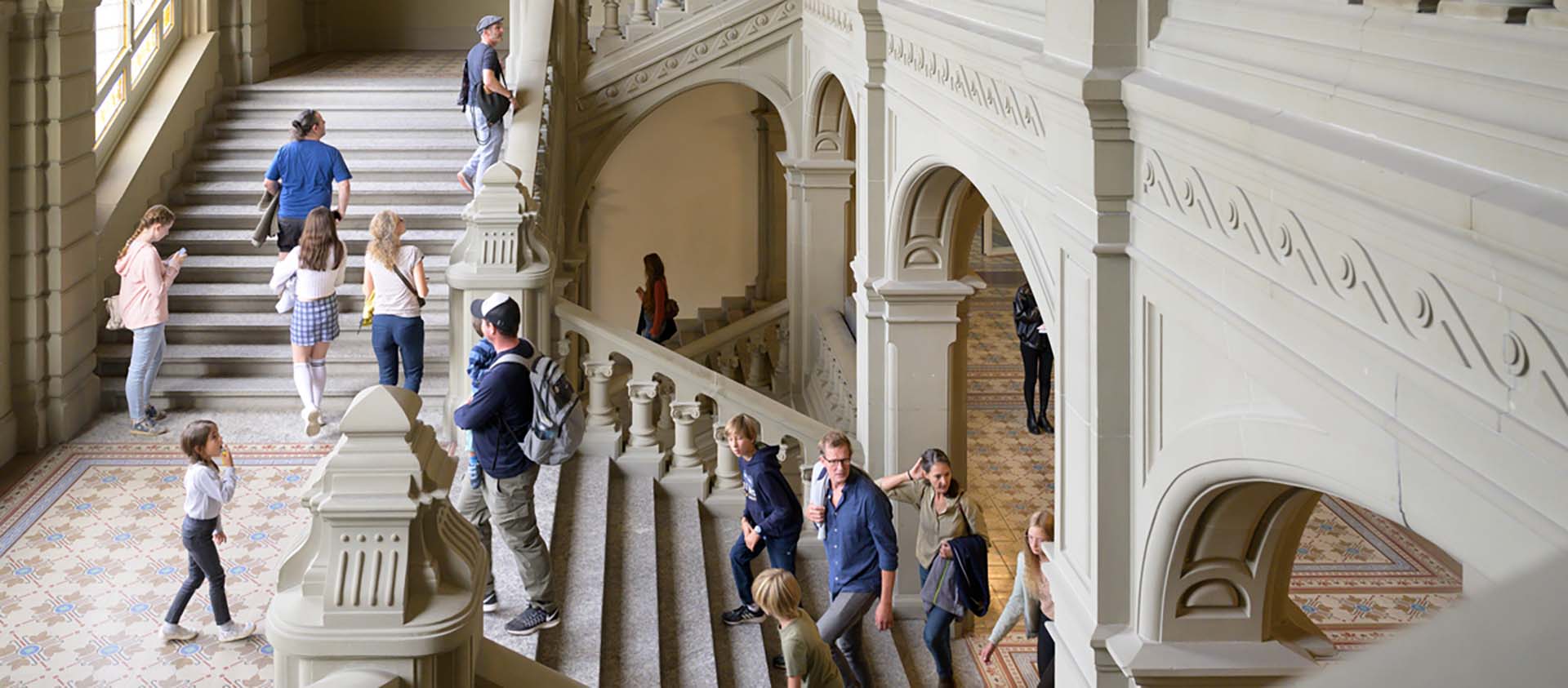
“With the new UniBE Short Travel Grants for supporting research trips, early career researchers have once again been given the opportunity to carry out projects abroad.”
Executive Board
Offering perspectives
The war in Ukraine has posed some new challenges for the University of Bern. The University reacted to the situation and introduced a preparatory year for Ukrainian students in a quick and straightforward manner. At the same time, projects abroad also restarted, leading to a strengthening of international exchanges.
By Prof. Dr. Virginia Richter, Vice-Rector for Development
An unexpected challenge – taking in students from Ukraine
Among the people seeking refuge in Switzerland following the Russian attack on Ukraine, many were students. Those who were already registered at Ukrainian universities were accepted as exchange students at the University of Bern quickly and with a minimum red tape. Greater difficulties arose when it came to admitting students into a degree program who had a Ukrainian university entrance certificate but did not meet the other admission requirements for studying at the University of Bern. The University then decided to implement a pilot project for this group with the launch of a preparatory year intended to offer those who complete it successfully the prospect of studying at the University of Bern.
The preparatory year for Ukrainian students was developed in the spring of 2022, with a great deal of work involved under a tight schedule. The process was marked by short decision-making paths and fast, pragmatic solutions. Critically important was the rapid provision of funding, partly from the Canton of Bern and partly from the University. Over 30 people from inside and outside the University were involved. Lessons started in August 2022 with an intensive language course. A total of 12 people were admitted to the program. The goal is to develop their general study skills through introductory events in a range of directions coupled with the intensive learning of language skills. After completing the course successfully, the students can then apply for registration in a bachelor degree course at the University of Bern.
Acquisition of the language skills necessary for studies – in other words, German at C1 level (with B1 level required for starting the preparatory year) – proved a hard nut to crack. In order to achieve this ambitious goal within one year, three principles are followed – intensive language lessons with very experienced tutors, further exploration of the taught material in tutorials, and allowing the participants to shape their own learning process independently.
The last of these principles is a challenge, as continuous assessments, independently devised learning projects (e.g. presentations) and working with portfolios are new to the participants. As a result, in-depth explanation and preparation of the academic requirements are required. This also includes teaching intercultural skills in special courses. Those responsible are required to act in an empathetic, interculturally sensitive way and to challenge the students. This is a learning process for everyone involved. The University of Bern hopes to take the experiences gained in the preparatory year and use these for the fruitful integration of student refugees of all nationalities in future.
Back to in-person teaching – added opportunities for exchange
While the war in Ukraine posed some new challenges for the University of Bern, 2022 also became known as the year after COVID and opened the door to new opportunities. New channels were launched and existing formats expanded in the field of academic talent and career development. Following restrictions due to the pandemic in previous years, the return to in-person teaching led to a lively exchange of information and experience, which in turn was reflected by the keen interest in these offerings and the positive feedback received.
With the new UniBE Short Travel Grants for supporting research trips, early career researchers have once again been given the opportunity to carry out projects abroad and to expand their international networks. The new courses for doctorate supervision focused on the core topics of challenges and content associated with good supervision. These courses offered the opportunity to reflect on one’s own role as a supervisor and for the interdisciplinary exchange of experiences between the participants. In terms of non-academic career development, it was again possible to hold the major Night of Starting Careers event. Around 800 students and doctoral students from all fields of study took the opportunity to expand their job application skills and make contact with employers. The talks on starting careers with alumni from various fields of study were particularly popular, and were carried out in cooperation with the respective student representatives.
